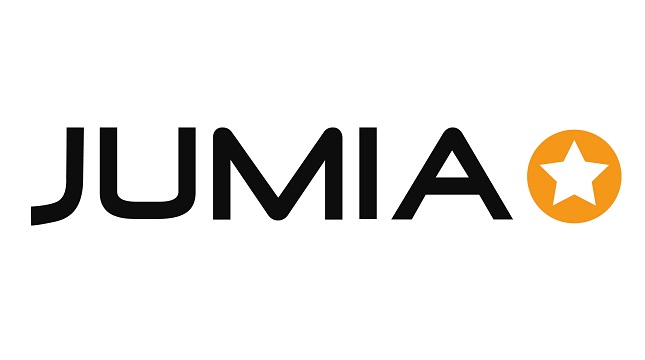E-Business
Malware Infiltrating Millions of Yahoo

Fox-IT, a Dutch security firm, on Friday, January 3, detected malicious activity on some of its clients’ networks, presuming, is following a common phenomenon that they had all previously visited yahoo.com.
Further investigation by InfoSecurity revealed malvertising on the Yahoo site – and it is possible that millions of users have been infected via Yahoo.
“Clients visiting yahoo.com received advertisements served by ads.yahoo.com,” blogged Joost Bijl, Fox-IT’s product manager for ProtACT, its security monitoring service. “Some of the advertisements are malicious. Those malicious advertisements are iframes hosted on [five separate domains].”
The iFrames, InfoSecurity highlighted, silently redirected the Yahoo visitors “to seemingly random subdomains” of several domains all served from a single IP address that appears to be hosted in the Netherlands.
Here the visitors were served with the Magnitude exploit kit which attempted to exploit several Java exploits. If any of the exploits were successful, the victim was infected with one of a range of trojans including Zeus, Andromeda, Dorkbot, Tinba, Necurs and click fraud malware.
InfoSecurity said that magnitude is proving an increasingly popular exploit kit among cybercriminals since the arrest of Paunch, the alleged author of the Blackhole EK.
“The investigation showed that the earliest signs of infection were at December 30, 2013. Other reports suggest it might have started even earlier”, continued Fox-IT. It updated its report, still on 3 January, with the comment, “It appears the traffic to the exploit kit has significantly decreased. It looks like Yahoo is taking steps to fix the problem.”
Fox-IT estimates that around 300,000 users visited the site every hour during the infection. “Given a typical infection rate of 9% this would result in around 27.000 infections every hour,” it suggests. A second Dutch company, SurfRight, provided additional information on its Hitman blog on Sunday. It confirmed December 30 as the start of the infections.
“Our systems detected the first threats associated with this malware campaign on Monday December 30th, 2013 (now 6 days ago). This means that a lot more users are infected than initially thought (4 days x 24 hours x 27,000 infections = 2.5 million infected computers),” it concluded.
At the time of writing this report, Yahoo has not published a formal statement on the issue. It has, however, released two brief statements to journalists. On Saturday it said, “We recently identified an ad designed to spread malware to some of our users. We immediately removed it and will continue to monitor and block any ads being used for this activity.”
On Sunday it added, “On Friday, January 3 on our European sites, we served some advertisements that did not meet our editorial guidelines, specifically they spread malware. We promptly removed these advertisements. Users in North America, Asia Pacific and Latin America were not served these advertisements and were not affected. Additionally, users using Macs and mobile devices were not affected.”
E-Business
Firm Enhances its Security Awareness Platform with SCORM and PDF Support

Kaspersky has introduced an update to its Automated Security Awareness Platform, adding full support for PDF and SCORM (Sharable Content Object Reference Model) – the industry-standard protocol for deploying and managing e-learning content.

The enhancement enables organisations to build fully customised cybersecurity training programmes that reflect their infrastructure, risk profile, and internal policies, while continuing to benefit from Kaspersky’s expert-driven security content and phishing simulations.
According to the Kaspersky report titled “Redefining the Human Factor in Cybersecurity”, employees responding to phishing attacks was one of the main causes of cyber incidents in companies worldwide, accounting for 21% of cases among other reasons.
At the same time, additional Kaspersky research reveals that social engineering attacks are predicted to increase more than any other type in the nearest future, with 87% of respondents believing that social engineering attacks will become even more effective due to the use of AI tools.
The new Kaspersky Automated Security Awareness Platform (Kaspersky ASAP) update directly addresses several persistent challenges such as reducing the number of human-related incidents, cutting time spent on managing training programmes, decreasing regulatory and compliance risks, and minimising potential legal or reputational damage stemming from cybersecurity breaches.
With the new SCORM support, the platform becomes even more flexible: companies can now upload, track, and manage their own SCORM-based learning materials directly within the system. In addition, companies can accelerate their programmes by using easier-to-create PDF-formats.
This allows organisations to tailor training to their specific technology stacks and emerging threats targeting their industry or region. Businesses that have already invested in third-party SCORM courses or internal learning development can now seamlessly reuse their existing modules, protecting their prior investments while strengthening their cybersecurity posture.
The combination of Kaspersky’s embedded content built on real cases uncovered by the company’s world-class experts with customers’ PDF materials or SCORM modules enables a true best-of-breed approach to human risk management.
Organisations can supplement Kaspersky’s up-to-date cyberattack scenarios with internal policies, unique workflows, and industry-specific lessons, ensuring training resonates with employees and reflects real operational challenges.
“Human behaviour remains one of the most unpredictable elements in cybersecurity and also one of the easiest for attackers to exploit. By adding SCORM support to Kaspersky Automated Security Awareness Platform, we’re giving organisations the flexibility to build training programmes that truly match their internal realities.
“Combined with Kaspersky’s expert-driven content and real-world attack data, this update empowers companies to create more adaptive, relevant, and impactful awareness programmes than ever before,” comments Svetlana Kalashnikova, Security Awareness expert at Kaspersky.
E-Business
NDPC, 60 DPAs Collaborate on Enforcing Privacy Rights in the Use of Al

Nigeria Data Protection Commission (NDPC) has joined sixty (60) other Data Protection Authorities (DPAs) in endorsing the “Joint Statement on Al-Generated Imagery and the Protection of Privacy.”

NDPC
The Joint Statement was coordinated by the International Enforcement Cooperation Working Group (IEWG) of the Global Privacy Assembly.
This underscores the growing concerns regarding the privacy risks posed by Artificial Intelligence tools capable of generating realistic images and videos of identifiable individuals.
The Joint Statement highlights concerns over the misuse of Al-powered tools to create non-consensual imagery, defamatory content, and other harmful materials, particularly affecting children and vulnerable groups.
It calls on organisations to implement strong safeguards, ensure transparency, provide effective content removal mechanisms, and comply fully with applicable data protection laws.
The current effort forms part of a continuum of steps being taken by Nigeria to ensure the responsible use of Al. It will be recalled that the Honourable Minister of Communications, Innovation and Digital Economy, Dr ‘Bosun Tijani, led the initiative for the development of the National Al Strategy.
The NDPC also issued the General Application and Implementation Directive (GAID), which, amongst others, mandates privacy by design and privacy by default in the development and deployment of Al tools.
The National Commissioner/CEO of the NDPC, Dr Vincent Olatunji, has directed that the Nigeria Data Protection Act (NDP Act) Compliance Audit Returns (CAR) by data controllers and processors of major importance will serve as a yardstick for monitoring and evaluating responsible use of Al for data processing in Nigeria.
E-Business
Jumia Tech Week 2026 Begins with Tech Deals on Smartphones, Electronics, and Everyday Technology

Jumia Nigeria has announced the launch of Jumia Tech Week 2026, a two-week campaign offering customers access to discounted technology products across key categories, including smartphones, computing, home entertainment, and wearable devices.

Starting from March 2 to March 15, Jumia Nigeria’s Tech Week 2026 is themed ‘Tech Products for Less’ – a deliberate commitment by the e-commerce giant to drive down the cost of technology products for Nigerian consumers. The campaign offers significant price reductions across key product categories, enabling more Nigerians to access the devices they need at prices that reflect the company’s dedication to affordability and consumer value.
Jumia Tech Week will feature deals across a wide range of product categories, including mobile phones, computer systems and accessories, televisions and audio equipment, gaming products, home appliances, portable power solutions, health technology,, and wearable devices.
Customers will also have access to curated recommendations, including top smartphone deals, must-have accessories, gaming essentials, and home technology upgrades.
According to Temidayo Ojo, CEO of Jumia Nigeria, the campaign reflects Jumia’s broader commitment to making everyday technology more accessible to Nigerians.
“Technology has become an essential part of everyday life, and access to the right devices enables more people to participate fully in the digital economy,” said Ojo. “At Jumia, we remain focused on expanding access and improving the shopping experience as we continue to build Nigeria’s everyday retail destination.”
The campaign will include a range of customer engagement initiatives such as flash sales, brand days, anchor deals and interactive activities designed to enhance the online shopping experience.
Special highlight periods, described as Explosion Days, will take place on March 6 and March 13, featuring limited-time offers across selected technology categories. Customers will also be able to participate in interactive activities, including product-based games, treasure hunts,, and live shopping sessions during the campaign period.
The campaign will feature participation from leading brands including Oraimo, Silver Crest, Samsung, Ecoflow, Nivea and Aeon, offering customers a wide selection of technology, household and lifestyle products. Early access promotions already begun during the teaser period from February 16 to March 1, allowing customers to preview selected deals ahead of the official launch.
Jumia Tech Week forms part of the company’s broader strategy to expand e-commerce adoption by improving access to essential products and enhancing the customer experience across its platform. As Nigeria’s e-commerce market continues to grow, Jumia remains focused on strengthening its product assortment, logistics capabilities, and digital experience to serve customers better nationwide.
Customers can participate in the campaign by using the Jumia mobile app or visiting the Jumia website and following the conversation online using #JumiaTechWeek.

 Telecom2 days ago
Telecom2 days agoSunil Bharti Mittal Conferred GSMA Lifetime Achievement Award for Transforming Global Telecommunications

 Telecom2 days ago
Telecom2 days agoWhy Digital Trust Matters: Secure, Responsible AI for African SMEs?

 General News2 days ago
General News2 days agoKrishnan Exits Africa Data Centre to Embark on Professional Chapter

 E-Business2 days ago
E-Business2 days agoJumia Tech Week 2026 Begins with Tech Deals on Smartphones, Electronics, and Everyday Technology

 General News3 days ago
General News3 days agoLeo Stan Ekeh at 70; thanks Tinubu, Obasanjo, Nigerians, Global Tech Community

 Broadcasting2 days ago
Broadcasting2 days agoNCAA Orders Overland Airways to Refund VAT Charged on 2025 Tickets

 Telecom2 days ago
Telecom2 days agoHouse Probes Fintech Regulation via Public Hearing on New Commission Bill

 E-Financial1 day ago
E-Financial1 day agoNRS Targets N40trillion in Tax, Royalty Revenue in 2026

























